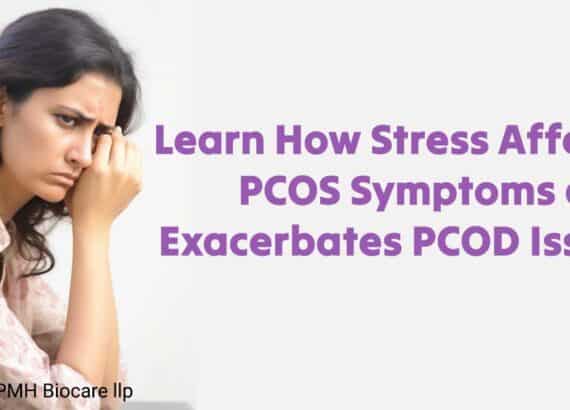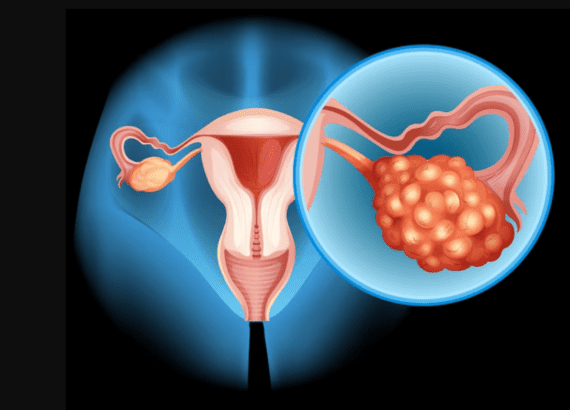Understanding the Symptoms of Pregnancy with PCOS: Precautions to Take

From PCOS to Parenthood: Taking Precautions for a Successful Pregnancy
Pregnancy is an exciting and life-changing event for any woman. However, if you are one of the many women who have been diagnosed with Polycystic Ovary Syndrome (PCOS), pregnancy may come with certain challenges.
Polycystic Ovary Syndrome (PCOS) affects millions of women worldwide and poses challenges for those who wish to conceive and have a successful pregnancy. Women with PCOS have a higher risk of developing gestational diabetes, high blood pressure, and pre-eclampsia during pregnancy.
However, with the right precautions and lifestyle adjustments, women with PCOS can increase their chances of a healthy pregnancy and delivering a healthy baby. In this article, we will explore the connection between PCOS and pregnancy, discuss essential precautions for women with PCOS during pregnancy, and provide tips for managing PCOS symptoms while expecting. Whether you are trying to conceive or seeking information on PCOS and pregnancy, this article is for you. Let’s delve into the precautions women with PCOS should take for a successful pregnancy.
Are you experiencing unusual symptoms, but not sure if you’re pregnant? If you have Polycystic Ovary Syndrome (PCOS), detecting pregnancy can be challenging. PCOS can interfere with your menstrual cycle, and you may not know if you have missed your period or just experiencing irregular cycles. Remember, early detection is key to a healthy pregnancy, so don’t hesitate to seek medical attention if you suspect you may be pregnant.
PCOS Symptoms: What to Look For
PCOS can manifest in a variety of symptoms, some of which can overlap with those of pregnancy. The most common symptoms of PCOS include:
- Irregular periods or no periods at all
- Acne or oily skin
- Weight gain or difficulty losing weight
- Excess hair growth on the face, chest, or stomach
- Hair loss or thinning on the scalp
- Darkening of the skin, especially around the neck or armpits
- Mood swings or depression
While not all women with PCOS experience all of these symptoms, it’s essential to talk to your doctor if you notice any changes in your menstrual cycle or overall health.
Understanding PCOS and Its Impact on Fertility
PCOS is a hormonal disorder that affects the ovaries. Women with PCOS have higher levels of male hormones called androgens. This hormonal imbalance leads to various symptoms, including irregular periods, acne, weight gain, and excessive hair growth. PCOS can significantly impact fertility as women with this condition often experience irregular ovulation or lack of ovulation, leading to infertility.
In fact, PCOS is one of the most leading causes of infertility in women and up to 80% of women with PCOS face challenges conceiving. This can be emotionally taxing for women attempting to conceive. Additionally, PCOS increases the risk of miscarriage due to elevated levels of luteinizing hormone (LH) and insulin. Nonetheless, by adopting the right precautions and making lifestyle changes, women with PCOS can conceive and carry a healthy pregnancy to term.
PCOS and Pregnancy: What You Need to Know
If you have PCOS, getting pregnant can be more challenging than for women without this condition. PCOS can affect ovulation, making it harder to predict when you’re most fertile. Additionally, PCOS can cause hormonal imbalances that can affect the quality of your eggs and increase the risk of miscarriage.
However, having PCOS doesn’t mean you can’t get pregnant. Many women with PCOS have successfully conceived and carried a healthy pregnancy to term. The key is to understand your body, work with your doctor, and adopt healthy habits that can improve your fertility.
Pregnancy Complications and Risk Factors for Women with PCOS
When you have PCOS, getting pregnant may be more difficult than usual, but it’s not impossible. Many women with PCOS have successfully conceived and delivered healthy babies. However, during pregnancy, you may experience some unique symptoms that require close monitoring. If you have PCOS and are pregnant, you may be at a higher risk of certain complications. Let’s take a closer look at some of the risks associated with PCOS during pregnancy.
- High Risk of Gestational Diabetes : Women with PCOS are at a higher risk of developing gestational diabetes during pregnancy. This condition occurs when the body cannot produce enough insulin to regulate blood sugar levels. To prevent gestational diabetes, it’s essential to maintain a healthy weight, exercise regularly, and follow a healthy diet.
- Risk of Miscarriage : Women with PCOS are at a higher risk of miscarriage than women without the condition. It’s crucial to seek medical attention as soon as you suspect you’re pregnant to monitor your pregnancy closely and ensure that you receive appropriate care.
- Increased Risk of Pre-eclampsia : Pre-eclampsia is a pregnancy complication characterized by high blood pressure and damage to organs, such as the kidneys and liver. Women with PCOS have an increased risk of developing pre-eclampsia during pregnancy. It’s essential to monitor your blood pressure regularly and seek medical attention if you notice any unusual symptoms.
-
Preterm Labor : Preterm labor, or going into labor before 37 weeks of pregnancy, is another risk associated with PCOS. Women with PCOS may have a higher risk of preterm labor due to underlying inflammation or infection.
-
C-Section Delivery : Women with PCOS are more likely to have a C-section delivery due to the increased risk of fetal distress. Fetal distress can occur when the baby is not receiving enough oxygen or nutrients, which can be caused by various factors, including maternal health conditions like PCOS.
What Precautions to Take During Pregnancy with PCOS?
If you have PCOS and are pregnant, it’s essential to take necessary precautions to ensure a healthy pregnancy. Here are some tips to consider:
- Preconception Planning for Women with PCOS : If you have PCOS and plan to get pregnant, it is crucial to take specific precautions to increase the likelihood of a successful pregnancy. Start by consulting with your doctor, who can help develop a personalized preconception plan. This plan may involve lifestyle modifications like weight loss and regular exercise. Shedding extra weight can improve ovulation and increase the chances of conception, while exercise helps regulate hormones and enhance fertility. Additionally, your doctor may recommend medical interventions to boost your chances of getting pregnant, such as ovulation induction medications like clomiphene citrate or letrozole. These medications stimulate ovulation and increase the likelihood of conceiving.
- Lifestyle Changes to Improve Fertility : If you have PCOS and are actively trying to conceive, implementing certain lifestyle changes can enhance your fertility. One crucial change is adopting a healthy diet, rich in fruits, vegetables, and whole grains. This dietary adjustment aids in hormonal regulation and improved fertility. Regular exercise is another vital factor in enhancing fertility for women with PCOS. Exercise helps regulate hormones and improves insulin sensitivity, thereby increasing the chances of ovulation and conception. Maintaining a healthy weight is equally important, as women with PCOS are more likely to be overweight or obese, which can hinder conception. Losing weight can improve ovulation and boost the likelihood of getting pregnant.
- Medical Interventions for Women with PCOS : In cases where lifestyle changes alone are insufficient to improve fertility, medical interventions may be necessary. Several medications can stimulate ovulation in women with PCOS. These include clomiphene citrate, letrozole, and gonadotropins. Clomiphene citrate and letrozole are oral medications that induce ovulation by blocking estrogen receptors in the brain, leading to increased levels of follicle-stimulating hormone (FSH), which prompts the ovaries to produce and release eggs. In cases where clomiphene citrate or letrozole fail to yield results, gonadotropins, injectable medications that directly stimulate the ovaries, may be considered.
- Partner Support During the Preconception Period : The journey to conception can be stressful and emotional for both partners involved. Establishing a support system during the preconception period is crucial. This support system may comprise your partner, family members, and friends. Your partner plays a vital role in your preconception plan, assisting you with healthy lifestyle changes, offering emotional support, and accompanying you to doctor’s appointments. Open communication with your partner about your feelings and concerns is equally important, as it helps reduce stress, anxiety, and improves your chances of conceiving.
- Nutrition and Exercise During Pregnancy with PCOS : Maintaining a healthy diet and regular exercise routine during pregnancy is crucial, particularly for women with PCOS. Consuming a diet rich in fruits, vegetables, and whole grains aids in hormonal regulation and reduces the risk of gestational diabetes. Regular exercise during pregnancy helps regulate hormones and improves insulin sensitivity, thus minimizing the risk of gestational diabetes. Before initiating any exercise program during pregnancy, it is essential to consult your doctor.
- Managing Gestational Diabetes with PCOS : If you develop gestational diabetes during pregnancy, managing the condition is vital. This may involve regular monitoring of blood sugar levels, dietary adjustments, and adhering to prescribed medications. Working closely with your doctor in managing gestational diabetes reduces the risk of complications, ensuring the delivery of a healthy baby.
- Preparing for Delivery and Postpartum Care : Preparing for delivery and postpartum care is crucial for women with PCOS. Certain complications, such as preterm labor and cesarean delivery, are more common in women with PCOS. Collaborating with your doctor to develop a personalized delivery plan, considering the associated risks and benefits, helps in making informed decisions. Postpartum care is equally important, as women with PCOS face an increased risk of developing postpartum depression. Seeking support when experiencing symptoms of depression is crucial.
- Maintain a healthy weight : Maintaining a healthy weight is crucial for managing PCOS and improving your fertility. Losing just 5% of your body weight can help regulate your menstrual cycle and increase your chances of ovulation. Aim for a balanced diet that includes plenty of fruits, vegetables, lean protein, and whole grains. Avoid processed foods, sugary drinks, and high-fat foods, which can worsen insulin resistance.
- Manage stress : Stress can have a negative impact on your fertility and overall health. Finding ways to manage stress, such as yoga, meditation, or counseling, can help improve your chances of getting pregnant with PCOS.
- Track your ovulation : Tracking your ovulation can help you identify the best time to conceive. While ovulation kits can be helpful, they may not be accurate for women with PCOS. Talk to your doctor about other methods of ovulation tracking, such as basal body temperature monitoring or cervical mucus analysis.
- Regular Prenatal Checkups : Regular prenatal checkups are essential during pregnancy with PCOS. Your doctor will monitor your health and your baby’s development to ensure a safe and healthy pregnancy. They may also recommend additional tests, like ultrasounds, to monitor your baby’s growth and detect any potential complications.
- Consider fertility treatments : If you’re having trouble getting pregnant with PCOS, fertility treatments may be an option. Treatments such as Clomid or letrozole can help stimulate ovulation, while procedures like intrauterine insemination (IUI) or in vitro fertilization (IVF) can help increase your chances of conception.
The Best Age to Get Pregnant with PCOS
If you have PCOS, you may wonder what the best age is to get pregnant. There’s no one-size-fits-all answer to this question, as it depends on various factors, such as your age, overall health, and fertility. However, it’s essential to seek medical advice before attempting to conceive, as women with PCOS may need additional support to get pregnant.
Real-Life Stories: Women with PCOS Share Their Journey to Motherhood
While the journey to motherhood can be challenging for women with PCOS, it’s not impossible. Here are some inspiring stories from women who have successfully conceived and had a healthy pregnancy with PCOS:
“After trying to conceive for two years, I was diagnosed with PCOS. My doctor recommended a low-carb diet and exercise to manage my symptoms. I also started tracking my ovulation using basal body temperature monitoring. After three months, I got pregnant naturally, and I now have a healthy baby boy.”
“I was told that I would never be able to have children because of my PCOS. I felt devastated and hopeless. But then, I found a doctor who specialized in PCOS and fertility. She prescribed letrozole, and after two rounds, I got pregnant. My son is now two years old, and I’m so grateful for him.”
“My PCOS symptoms were severe, and I had irregular periods and heavy bleeding. My doctor recommended a hysterectomy, but I wanted to try to have a child first. I started taking Metformin and Clomid, and after a few months, I got pregnant. I had a healthy baby girl, and my PCOS symptoms improved after giving birth.”
These real-life stories show that getting pregnant with PCOS is possible with the right strategies, support, and determination.
Conclusion
Getting pregnant with PCOS is possible, but it can be more challenging. It’s important to understand the possible risks to both the mother and baby and to take steps to increase your chances of conceiving. By maintaining a healthy weight, exercising regularly, eating a balanced diet, considering medications, and talking to your doctor, you can improve your chances of getting pregnant with PCOS. Remember that every woman’s journey to motherhood is different, and it’s important to have patience and stay positive. With the right care and support, you can overcome the challenges of PCOS and welcome a healthy, happy baby into your life.
Frequently Asked Questions (FAQs) about PCOS and Pregnancy
Q: What is the P C O D full form?
A: The full form of PCOD is Polycystic Ovarian Disease. It refers to a hormonal disorder that affects the ovaries. For detailed information about PCOD, its causes, symptoms, diagnosis, and management, you can visit our blog post on “PCOD full form” that provides in-depth insights into PCOD.
Q: Can PCOS Complicate Your Delivery?
A: Yes, PCOS can also complicate delivery. Women with PCOS may be more likely to require a cesarean section (C-section) due to factors such as a large baby or difficult labor. PCOS can also increase the risk of postpartum hemorrhage, or excessive bleeding after delivery.
Q: Can a woman with PCOS get pregnant naturally?
A: Yes, it’s possible for women with PCOS to get pregnant naturally, although it may be more challenging than for women without PCOS. Maintaining a healthy weight, managing PCOS symptoms pregnancy, and tracking ovulation can increase the chances of natural conception.
Q: How can I increase my chances of getting pregnant with PCOS?
A: Adopting a healthy lifestyle, such as maintaining a healthy weight, eating a balanced diet, exercising regularly, and managing PCOS symptoms pregnancy, can improve your chances of getting pregnant. Fertility treatments, such as letrozole or Clomid, may also be recommended by your doctor.
Q: Do PCOS symptoms affect pregnancy?
A: Yes, PCOS can increase the risk of gestational diabetes, high blood pressure, and pre-eclampsia during pregnancy. Women with PCOS may also have a higher risk of miscarriage or preterm birth.
Q: Can PCOS cause infertility?
A: PCOS can cause infertility in some women, as it can affect ovulation and hormone levels. However, many women with PCOS can conceive with the right strategies and treatments.
Q: How does PCOS affect ovulation?
A: PCOS can affect ovulation by causing irregular periods or preventing ovulation altogether. This can make it more challenging to conceive naturally.
Q: What are the best fertility treatments for women with PCOS?
A: The best fertility treatments for women with PCOS depend on individual circumstances. Letrozole, Clomid, and Metformin are commonly used medications to induce ovulation. In vitro fertilization (IVF) may also be recommended in some cases.
Q: Can I get pregnant with PCOS without fertility treatments?
A: Yes, it’s possible to get pregnant with PCOS without fertility treatments, although it may be more challenging. Maintaining a healthy weight, managing PCOS symptoms pregnancy, and tracking ovulation can increase the chances of natural conception.
Q: How does PCOS affect the chances of having a healthy baby?
A: Women with PCOS may have a higher chance of having a baby with a birth defect, although the risk is still relatively low. By receiving early and regular prenatal care, monitoring your health, and managing any complications that may arise, you can increase the chances of having a healthy baby.






Comments
Trackbacks & Pingbacks
[…] to irregular periods, infertility, and other health complications. Exercise can help manage the symptoms of PCOS, but it can be challenging to know where to start. In this post, we will discuss PCOS exercise tips […]
[…] Discover the truth about PCOS & pregnancy with Hermones.in – the trusted source for understanding & managing PCOS symptoms. Get personalized advice & support today! […]
[…] Symptoms during […]